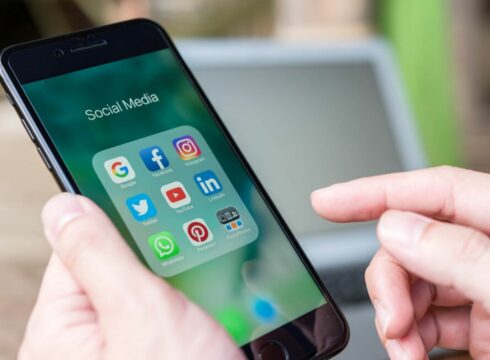SUMMARY
Delhi High Court had refused to entertain the plea back in 2019 as well
However, the SC has allowed the petitioner to club his petitions with other pending ones
Social media platforms are the direct beneficiaries of fake users’ surge, highlights another ongoing plea filed in Delhi HC
Inc42 Daily Brief
Stay Ahead With Daily News & Analysis on India’s Tech & Startup Economy
The Supreme Court of India, on May 26 (Tuesday), declined to hear a petition seeking the linking of Aadhaar to social media accounts in order to prevent fake accounts.
The petition was filed by a Bharatiya Janata Party (BJP) leader Ashwini Kumar Upadhyay. It was being heard by a bench of Justices L. Nageswara Rao, Krishna Murari and S. Ravindra Bhat through video conferencing, as per news reports.
The bench refused to further entertain this matter, following the footsteps of Delhi High Court, which had decided to not take up the plea in December 2019. “We see no reason to interfere with the impugned order of the High Court. The Special Leave Petition is, accordingly, dismissed. However, liberty is granted to the petitioner to file impleadment application in Transfer Case (Civil) No.5/2020,” said the apex court.
The transfer case will allow the petitioner to file an impleadment application in another matter concerning the linkage of Aadhaar with social media platforms, which is pending before the court. In other words, Upadhyay can club his petition with other petitions seeking the same.
In its ruling last year, the Delhi HC had said that such a move would lead to storage of personal information of genuine users on foreign servers. However, the petitioner argued that the Delhi High Court did not consider that there are over 35 Mn Twitter handles and approximately 350 Mn Facebook accounts use by Indian citizens. Of which 10% are fake, accounting for 3.5 Mn Twitter handles and 35 Mn Facebook accounts.
Upadhyay also argued that bogus accounts are used to spread fake news, and have been a root cause of many riots, including the recent riots in Delhi. The BJP leader also noted that fake news propagated through ghost accounts shapes opinion and even meddles with elections. He also noted that it is extremely difficult for a regular individual to distinguish between fake and real accounts.
The Delhi High Court has previously highlighted that any move such as linking social media accounts to government IDs needs a Personal Data Protection Bill, which has already been drafted but is yet to be tabled in the parliament.
The central government has stepped away from the debate around the linking of social media accounts with Aadhaar cards. In November, before the Delhi HC ruling, minister of information technology Ravi Shankar Prasad told Parliament that the government has no proposal for linking Aadhaar with social media accounts of individuals.
The UIDAI has also stated that the government will have to enact a new law to link Aadhaar to social media accounts of individuals. The reason, according to UIDAI, is that the current legislation only enables the use of Aadhaar for schemes and subsidies funded under the Consolidated Fund of India. For anything outside the purview of this fund, a new law has to be put in place.
Note: We at Inc42 take our ethics very seriously. More information about it can be found here.


